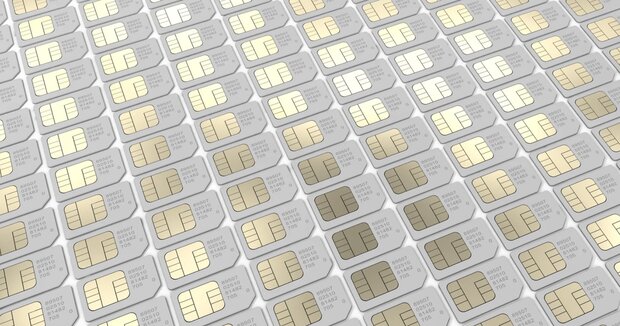According to Popular Science, the SIM cards that allow your phone to connect to your carrier contain bits of nickel, copper, silver, and gold. Now, researchers from Imperial College London and the University of Cagliari in Italy have discovered a less harmful way to recover gold from this electronic waste and reuse it in chemical reactions to produce medicine.
This process can help save e-waste from landfills as well as reuse precious metals that would otherwise have to be mined.
“I think if we can find better ways to use the waste we produce and recycle it, we won’t have to rely so much on mining,” said James Wilton Ely, the lead researcher on the study. “It will also help us to solve the problem of garbage that is currently piling up.”
To develop a recycling method, the researchers first purchased a bag containing 200 used SIM cards, then ground the SIM cards to remove their plastic and recover base metals such as nickel and copper. In the next step, to extract gold, they used a green and safe reagent called sulfur ligand, a molecule that binds to a central metal atom. What they were left with was a gold compound, but gold in this form cannot be reused in electronics. The gold composition of the SIM card cannot be returned to pure metallic gold without further processing; This means the cards cannot be recycled into more electronics.
“It’s not economically viable to convert that gold recovery product into new circuit boards or new SIM cards,” says Wilton Ely. But instead, we have found a different use for it. Rare metals such as gold can also be catalysts to accelerate chemical reactions that help create useful compounds such as medicinal compounds; For example, gold nanoparticles have been studied as catalysts for industry since the 1980s, so a team at Imperial College London tested whether a combination of gold recovered from SIM cards could be used to speed up chemical reactions commonly used in drug production. be
This compound can be used as a catalyst to make a number of drugs such as the anti-inflammatory and analgesic drug diflunisal and the anti-inflammatory arthritis drug oxapirocin. While the researchers have yet to use the recycled gold compound to produce an actual drug, the process suggests an alternative use for this discarded e-waste.
Currently, precious metals such as gold, platinum, iridium and palladium are used in many catalytic reactions, which consume a lot of energy and cause pollution. These metals are also found in only a few places on earth and their extraction is difficult depending on geopolitical factors. For example, Russia is one of the major producers of palladium and nickel.
“As chemists, we always value these elements,” says Wilton Ely. “So it’s a real shock to think that so many of these elements are routinely discarded in electronic waste, and dumpster diving for electronics can be a boon for essential metals and give a second life to our discarded devices.”
“By weight, a computer has more precious metals than mined ore, providing a concentrated source of these metals in an ‘urban mine,'” says Shanan McCarthy, another researcher in the study.
The research team’s recycling process is not limited to SIM cards. Scientists can also use this method to recycle circuit boards and printer cartridges. While the team is exploring more applications, pharmaceutical companies have yet to commit to the research. The use of gold is still nascent in the design of pharmaceuticals, but Wilton-Ely says, “I’m sure it will happen to achieve what we’re doing now, but the use of gold-catalyzed reactions in the design of pharmaceutical factories will happen in the future.”


